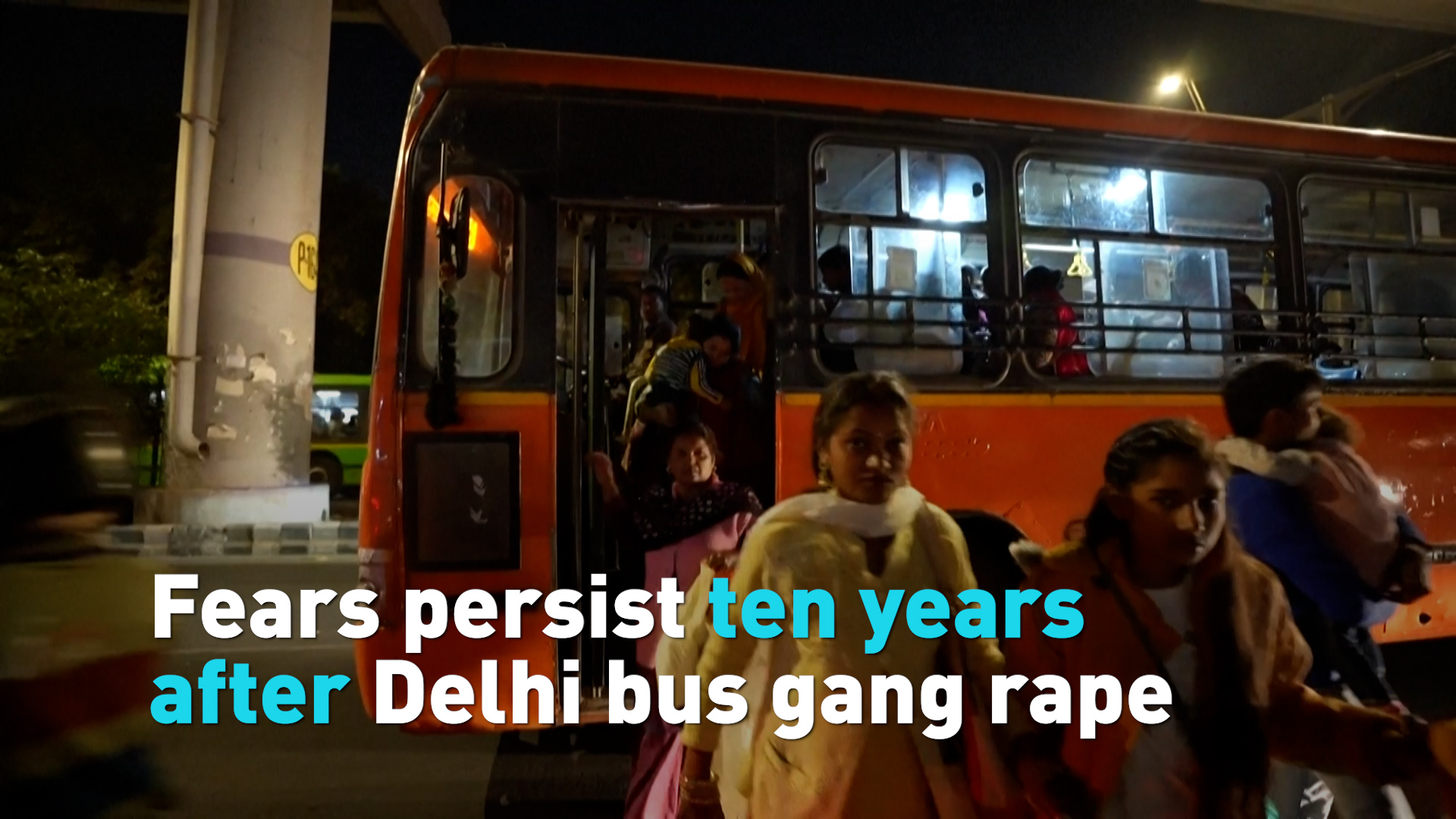Ten years ago on Friday, the horrific gang rape of a 23 year old physiotherapy intern on a bus in Delhi outraged the world.
Since then, activists in India continue to work hard to change a culture that too often blames victims for their own sexual assaults, but some say little has changed.
See how the terrifying account of Jyoti Singh, nicknamed 'Nirbhaya' or fearless, continues to push India to re-evaluate what many call its systemic disregard for women, ten years after her death.
02:50

The high rate of sexual violence toward women in India has not decreased since the international outrage of December 16, 2012 when Jyoti Singh, 23, was raped and tortured with an iron rod by six male bus passengers.
Her attackers dumped her on the side of the road after the disfiguring assault. Singh died from her horrific injuries after days of suffering.
She is was nicknamed “Nirbhaya” or”fearless” after her death.
Four of the attackers were hanged.
Singh’s mother, Asha Devi, has become prominent advocate for women’s safety in India.
India registered 31,677 rape cases last year, an average of 86 a day. That’s a 13 percent increase since 2020.
The persistence of the dowry tradition in a patriarchal society has left Indian women with fewer resources than men.In rural areas, where 70 percent of Indians live, the problem is deeper.
Girls who wear jeans, use mobile phones or go out with boyfriends are sometimes viewed sexually permissive by attackers. Life for lower-caste females is even more dangerous.
Activists in India continue to work hard to change the narrative of ‘victim-blaming.’ But sexual assaults remain all too common.
Singh’s mother says nothing has changed” for women seeking justice in India.
For more, check out our exclusive content on CGTN Now and subscribe to our weekly newsletter, The China Report.